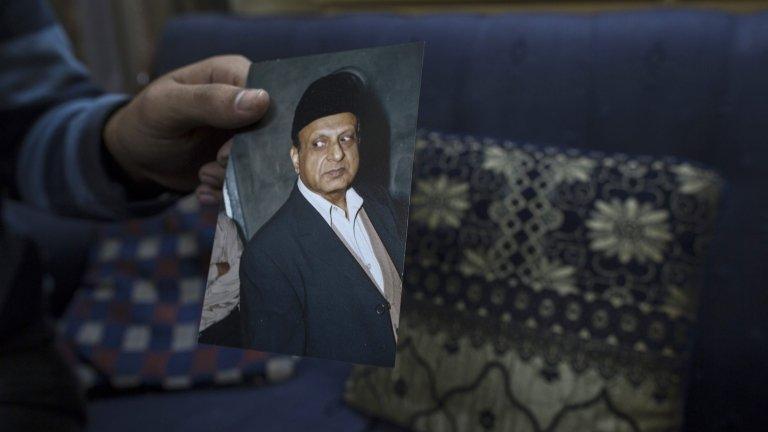Amnesty plea over Mohammad Asghar blasphemy case
- Published

Attempts to alter the blasphemy laws in Pakistan have been strongly resisted
Amnesty International has called for the immediate release of a man from the UK who is facing death under Pakistan's blasphemy laws.
Mohammad Asghar, from Edinburgh, was convicted and sentenced after sending letters to officials claiming to be the Prophet Mohammed.
Mr Asghar's lawyer has said he suffers from mental illness.
He was treated for paranoid schizophrenia in Edinburgh before he returned to Pakistan in 2010.
Amnesty's deputy Asia Pacific director Polly Truscott said: "Mohammad Asghar is now facing the gallows simply for writing a series of letters. He does not deserve punishment. No one should be charged on the basis of this sort of conduct.
"The blasphemy laws undermine the rule of law, and people facing charges risk death and other harm in detention.
"Pakistan must immediately release Mohammad Asghar and reform its blasphemy laws to ensure that this will not happen again."
Mr Asghar's lawyer has claimed his problems started when a tenant, who was in dispute with him, brought the blasphemy complaint against him to police.
The British High Commission in Islamabad said it was aware of Mr Asghar's case and provided assistance to him.
Lawyers said they will appeal against the conviction, and that they are worried about his mental condition and physical safety in prison.
'Difficult time'
Another British citizen, Masud Ahmad, of the Ahmadi sect, was imprisoned in November 2012 for reciting a passage from the Koran, a prohibited act for Ahmadis under the country's blasphemy laws.
Ms Truscott said: "The Pakistani authorities must immediately and unconditionally release both Mohammad Asghar and Masud Ahmad and guarantee their safety and that of their families. Several individuals have been attacked, some even killed following charges of blasphemy.
"At a time when Pakistan is reeling from a spate of abuses which perpetrators seek to justify as a defence of religious sentiments, reform of the blasphemy laws is more urgent than ever."
A Scottish government spokesman said: "We're concerned about this case and can confirm that we have been in touch with the FCO who will keep us informed of the situation.
"The Scottish government strongly opposes the death penalty in all circumstances. As a minimum we would urge the Pakistani authorities to abide by the moratorium they have on the death penalty.
"Our thoughts are with Mr Asghar's family at this difficult time."
Scores of people have been arrested in Pakistan under the country's harsh blasphemy laws, which carry sentences of life in prison or the death penalty, though executions are rarely carried out.
- Published24 January 2014

- Published29 June 2013

- Published25 December 2013
